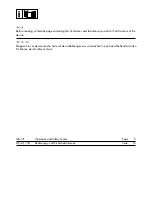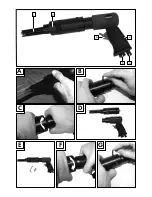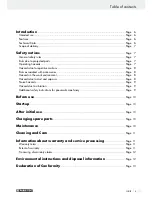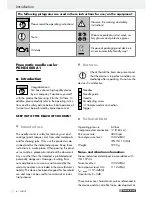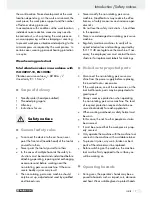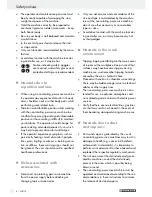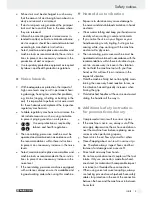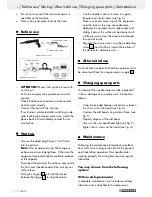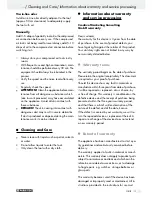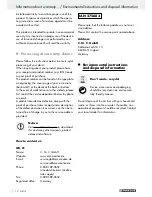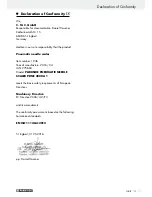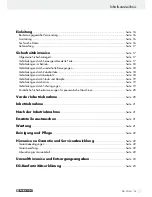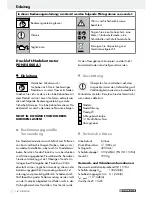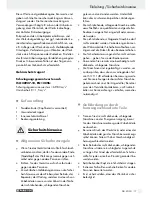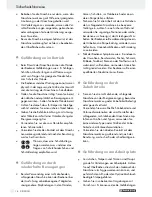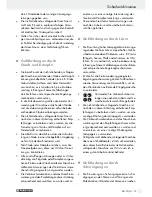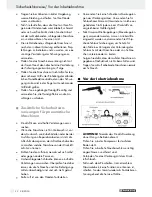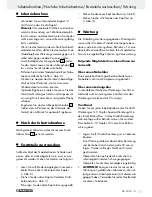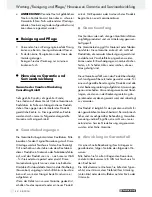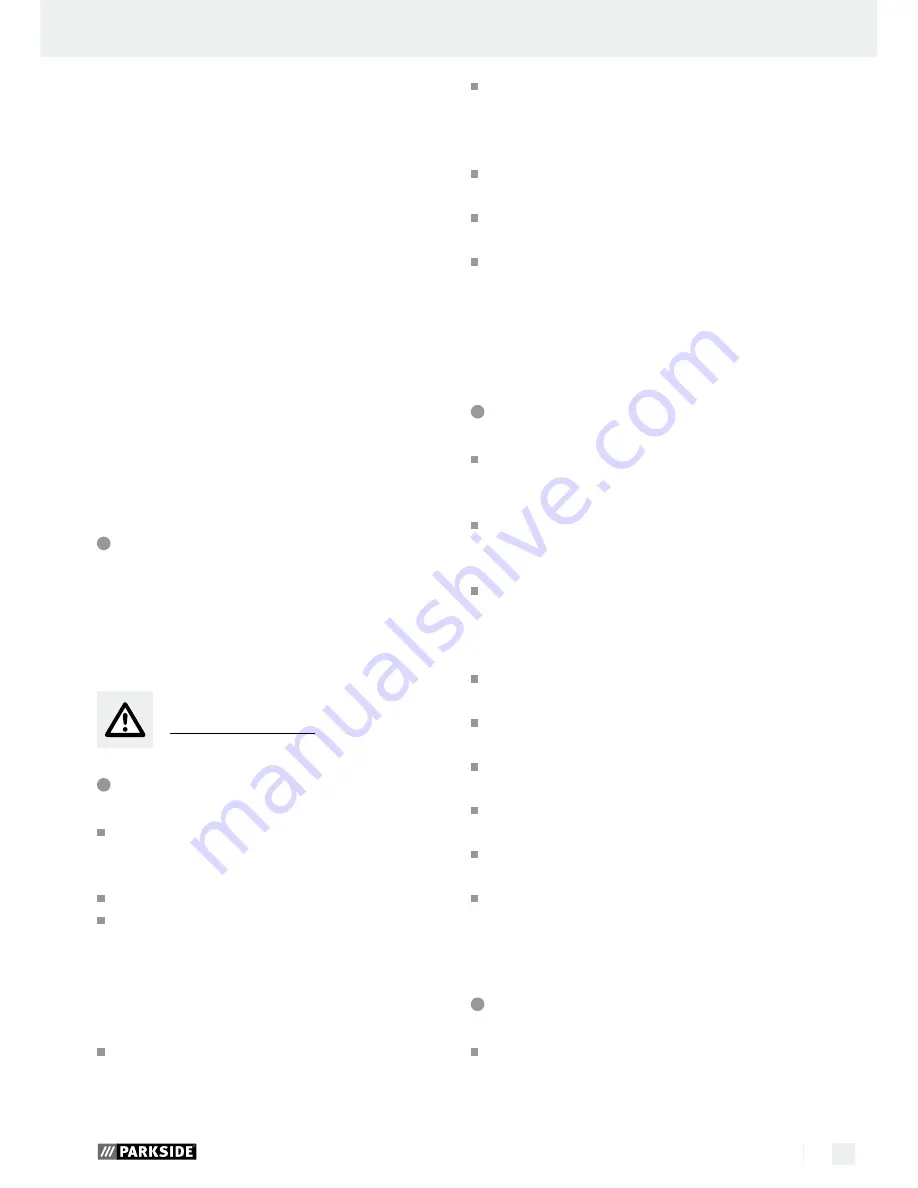
7
GB/IE
Introduction
Introduction / Safety notices
the work location. Noise development at the work
location depends e.g. on the work environment, the
work piece, the work piece support and the number
of fastener driving processes.
In accordance with conditions at the work location,
individual noise reduction measures may need to
be carried out, such as placing the work piece on
a noise-suppressing surface, clamping or covering
to prevent work piece vibration and adjusting to the
minimum pressure required by the work process. In
certain cases, wearing personal hearing protection
is require.
Wear hearing protection!
Total vibration values in accordance with
ISO 28927-10, EN 12096:
Vibration emission value a
h
= 69.83 m / s
2
Uncertainty K = 1.5 m / s
2
Scope of delivery
1 Needle scaler (head preinstalled)
1 Threaded plug nipple
1 Allen key
1 Instructions for use
Safety notices
General safety rules
To connect the device to the air hose, never
point the front end (needle head) of the tool at
yourself or others.
Never point the tool at yourself or others.
In the cases of multiple hazards the safety in-
structions must be read and understood before
attaching, operating, repairing and exchanging
accessories and before working near the
non-rotating, percussive machine. Otherwise
severe bodily injuries may result.
The non-rotating, percussive machine should
only be set up, adjusted and used by qualified
and trained users.
Never modify the non-rotating, percussive
machine. Modifications may reduce the effec-
tiveness of safety measures and increase oper-
ator risks.
Do not lose the safety instructions – hand them
to the operator.
Never use a damaged non-rotating, percussive
machine.
Regularly maintain machines to verify all re-
quired rated values and markings required by
ISO 11148 are legible on the machine. If nec-
essary, the employee/user must contact the man-
ufacturer for replacement labels for markings.
Risks due to projected parts
Disconnect the non-rotating, percussive ma-
chine from the power supply before replacing
the inserted tool or accessories.
If the work piece, one of the accessories, or the
tool itself breaks, parts may be projected at a
great speed.
Always wear eye protection when operating
the non-rotating, percussive machine. The level
of required protection required should be as-
sessed individually for each application.
When working overhead, a safety helmet must
be worn.
In this case, the risk to other people must also
be assessed.
It must be ensured that the work-piece is prop-
erly secured.
Only operate the machine with the machine tool
secured in the machine with a suitable retainer.
To prevent injuries, any worn, broken or bent
parts of the retainer must be replaced.
Before switching on the machine, the machine
tool must be firmly applied to the surface you
will be working on.
Operating hazards
During uses, the operator‘s hands may be ex-
posed to hazards such as impact, cuts, abrasion
and heat. Wear suitable gloves to protect hands.


